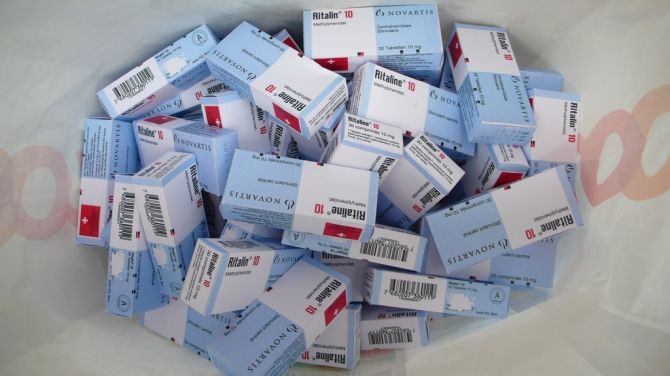Long-Term Ritalin Use For ADHD May Worsen Symptoms And Reduce Drug Efficacy

Long-term use of Ritalin could decrease the efficacy of the treatment for attention deficit hyperactivity disorder (ADHD) patients, and may even worsen symptoms of ADHD, a new study shows.
In the findings published in PLOS ONE on May 15, researchers for the first time looked at the long-term effects of Ritalin on this disorder, which is one of the most common childhood conditions that can persist long into adulthood.
Methylphenidate is commonly known as Ritalin and prescribed to treat ADHD patients. During the study's course, participants underwent a 12-month treatment of Ritalin. At the end, researchers noticed an elevated level of dopamine transporters (DAT) in participants.
DATs are proteins that pump dopamine neurotransmitters (DA) into the brain and are especially important for disorders like ADHD, which is associated with structural or regulatory damage to the DA transporter.
Dopamine is responsible for reward-driven learning and plays a major role in motivation and attention. In ADHD patients, DA levels are abnormally low, and Ritalin works by blocking DATs.
Researchers found that the rise in DA transporters as a result of long-term Ritalin use means the lengthy consumption may decrease the treatment's efficacy and worsen symptoms when they're not taking medication (i.e. on weekends).
"In this study the clinical measures at follow-up were obtained while subjects were under the influence of the medication, which explains the significant improvement in all of the clinical symptoms," the authors wrote.
They recruited 18 patients with ADHD and treated them with Ritalin for one year and performed a PET scan to compare before and after traces of DA transporters and determined that ADHD patients had DAT levels 24 percent higher than before their treatment.
"Repeated administration of a variety of stimulant drugs (e.g., cocaine, amphetamine) has been shown to change DAT expression in preclinical models," the researchers wrote. "These studies show different results for stimulant drugs that are DAT blockers, such as cocaine, from those of stimulant drugs that are DA releasers, such as methamphetamine and amphetamine."
Past studies have shown that deficits in DA signaling were linked to ADHD, and Ritalin has largely been used as the first line of treatment for youths into adulthood.
In a 2012 study published in the American Journal of Psychiatry, researchers from the Institute of Psychiatry at King's College London found that an ADHD patient could adapt to medication over time and suggested that short-term is better than long-term use of medication.
Previous measurements of DAT levels in ADHD patients were contradictory, experts said. Some scans indicated DAT levels were elevated while others reported they were reduced. The latest finding finally determines that the transporters are elevated in the brains of ADHD patients after long-term treatment.
According to the National Institute of Mental Health, stimulants like Ritalin are able to calm a child with ADHD and reduces their hyperactivity and impulsivity to improve focus and work skills, even physical coordination. While not all stimulants are pills, some are taken in liquid form or used as a skin patch, they also vary from long-acting to short-acting stimulants.
But there are parents who want to improve their child's ADHD symptom's without treatments. According to Rob Danoff, family physician and program director of the family practice residency program at Aria Health System, behavioral therapies are one approach that could improve symptoms. In contrast to medication, however, it could take more time and requires a persistent tracking of daily activities.
Source:
Wang GJ, Volkow ND, Wigal T, et al. Long-Term Stimulant Treatment Affects Brain Dopamine Transporter Level in Patients with Attention Deficit Hyperactive Disorder. PLOS ONE. 2013.
Fusar-Poli P, Rubia K, Giorgio R, et al. Striatal Dopamine Transporter Alterations in ADHD: Pathophysiology or Adaptation to Psychostimulants? A Meta-Analysis. Am J Psychiatry. 2012.



























